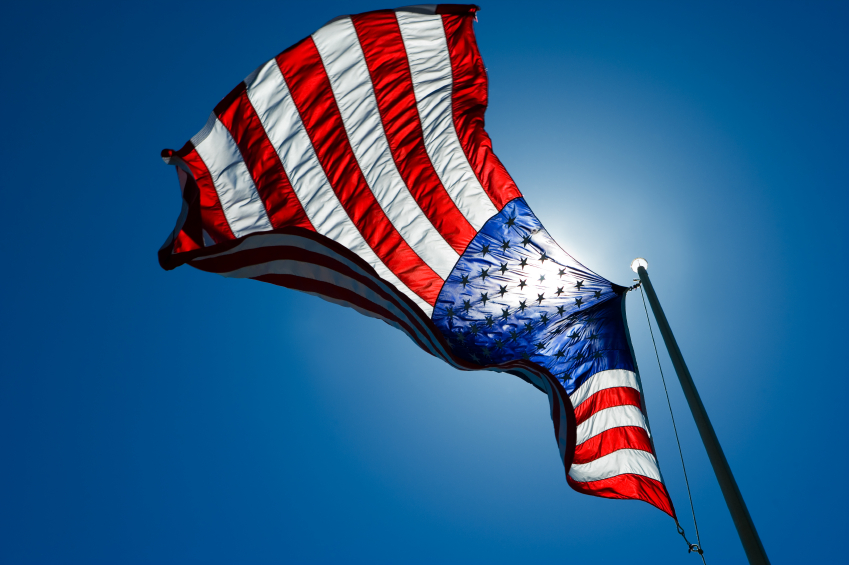Taking the Pledge
“I pledge Allegiance to the Flag of the United States of America, and to the Republic for which it stands…”
To take the Pledge of Allegiance is a remarkable act, which is often (nearly universally) overlooked.
The first pledge, composed by Franics Bellamy in 1892, was deliberately simple and brief: “I pledge allegiance to my flag and the republic for which it stands: one nation indivisible with liberty and justice for all.” It has been expanded, if not necessarily improved, at several points since then. (Thanks to Wikipedia, for the text and for an interesting history of the Pledge.)
A pledge is not just a statement, but a speech act, committing the speaker to…something. To what do we commit when we “pledge allegiance?” Certainly that pledge implies a promise to refrain from treason or sedition, so espionage and car bombing are out. If that were all, we would be wasting a great deal of time, in schools and in Congress, pledging simply to avoid what is prohibited by law and in some instances punishable by death. There must be more.
Indeed, the Pledge might mean much more, particularly in our current political climate. First, the Pledge offers common ground. One might quibble with a word or phrase, but we can agree to pledge allegiance to the Republic, can’t we? And if so, then all elected officials and political participants have much more in common than the current level of hostility would suggest.
Second, if we are truly serious about allegiance to the Republic, then we must also agree to act in ways that serve it. That means creating and promoting public policies that are just and truly good for the public. It also means refraining from speech and actions that imperil effective policy making. Lying, in all of its varied forms, cannot contribute to truly good government. Replacing constructive dialog with venom or just sheer idiocy do not advance our understanding of complex issues or promote effective decision making. Too much contemporary speech obscures rather than reveals the truth. One poignant example: if we are serious about our own patriotism, then we ought to be very, very cautious about impugning another’s, even when we disagree vehemently. Hostile political rhetoric is not mere noise. Lies and invective harm the processes, and impugn the civic values, on which the Republic depends.
Finally, while the Pledge is most frequently recited by schoolchildren, those who engage in governance of the Republic must agree to act more like adults, much more of the time. It starts with all of us.




Leave a Reply
Want to join the discussion?Feel free to contribute!